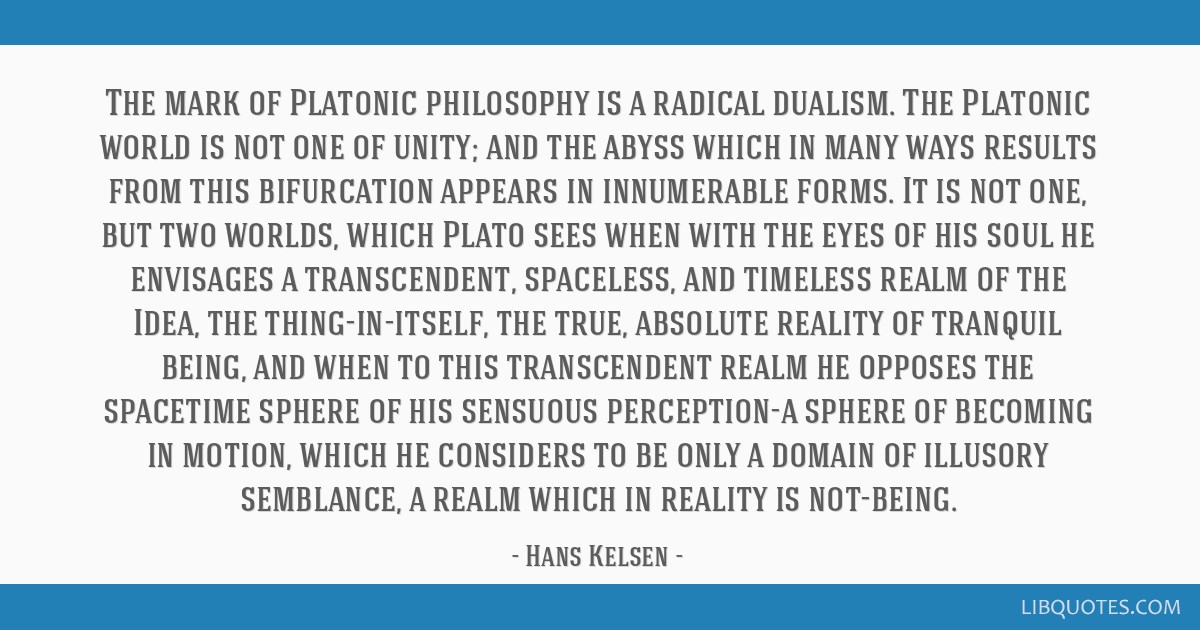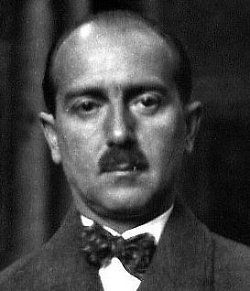The mark of Platonic philosophy is a radical dualism. The Platonic world is not one of unity; and the abyss which in many ways results from this bifurcation appears in innumerable forms. It is not one, but two worlds, which Plato sees when with the eyes of his soul he envisages a transcendent, spaceless, and timeless realm of the Idea, the thing-in-itself, the true, absolute reality of tranquil being, and when to this transcendent realm he opposes the spacetime sphere of his sensuous perception-a sphere of becoming in motion, which he considers to be only a domain of illusory semblance, a realm which in reality is not-being.
"Platonic Justice", Ethics, April 1938. Translated by Glenn Negley from "Die platonische Gerechtigkeit," Kantstudien, 1933. (The author corrected the translation in 1957), published in What is Justice? (1957)























